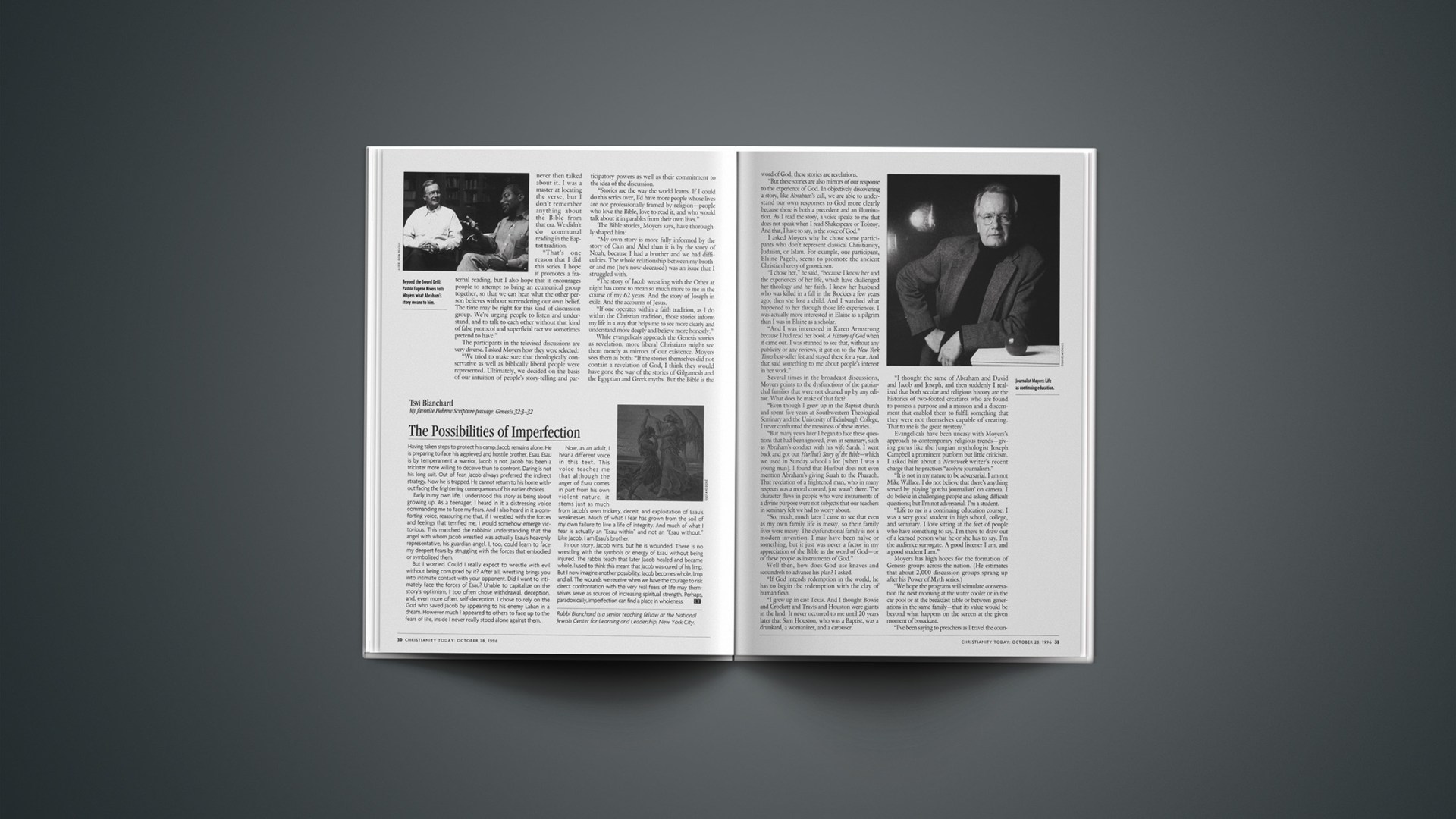Having taken steps to protect his camp, Jacob remains alone. He is preparing to face his aggrieved and hostile brother, Esau. Esau is by temperament a warrior, Jacob is not. Jacob has been a trickster more willing to deceive than to confront. Daring is not his long suit. Out of fear, Jacob always preferred the indirect strategy. Now he is trapped. He cannot return to his home without facing the frightening consequences of his earlier choices.
Early in my own life, I understood this story as being about growing up. As a teenager, I heard in it a distressing voice commanding me to face my fears. And I also heard in it a comforting voice, reassuring me that, if I wrestled with the forces and feelings that terrified me, I would somehow emerge victorious. This matched the rabbinic understanding that the angel with whom Jacob wrestled was actually Esau’s heavenly representative, his guardian angel. I, too, could learn to face my deepest fears by struggling with the forces that embodied or symbolized them.
But I worried. Could I really expect to wrestle with evil without being corrupted by it? After all, wrestling brings you into intimate contact with your opponent. Did I want to intimately face the forces of Esau? Unable to capitalize on the story’s optimism, I too often chose withdrawal, deception, and, even more often, self-deception. I chose to rely on the God who saved Jacob by appearing to his enemy Laban in a dream. However much I appeared to others to face up to the fears of life, inside I never really stood alone against them.
Now, as an adult, I hear a different voice in this text. This voice teaches me that although the anger of Esau comes in part from his own violent nature, it stems just as much from Jacob’s own trickery, deceit, and exploitation of Esau’s weaknesses. Much of what I fear has grown from the soil of my own failure to live a life of integrity. And much of what I fear is actually an “Esau within” and not an “Esau without.” Like Jacob, I am Esau’s brother.
In our story, Jacob wins, but he is wounded. There is no wrestling with the symbols or energy of Esau without being injured. The rabbis teach that later Jacob healed and became whole. I used to think this meant that Jacob was cured of his limp. But I now imagine another possibility: Jacob becomes whole, limp and all. The wounds we receive when we have the courage to risk direct confrontation with the very real fears of life may themselves serve as sources of increasing spiritual strength. Perhaps, paradoxically, imperfection can find a place in wholeness.
Rabbi Blanchard is a senior teaching fellow at the National Jewish Center for Learning and Leadership, New York City.










